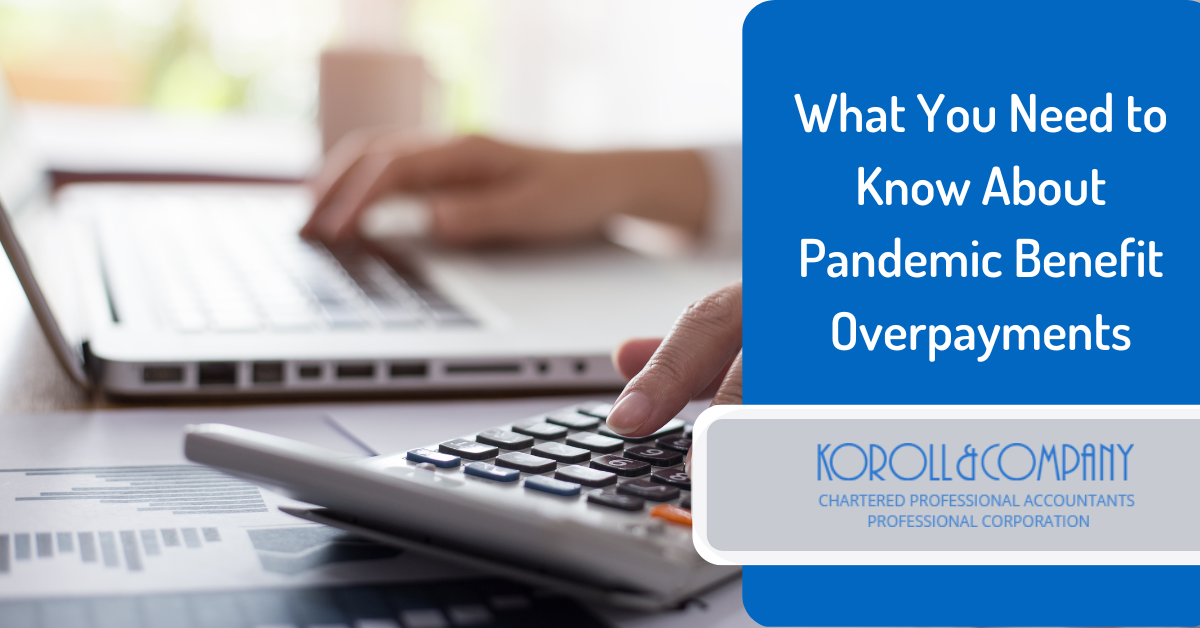
When the pandemic started, the government was focused on getting money to recipients as quickly as possible. The goal was to mitigate financial struggles that many were suddenly facing.
The problem is, some Canadians received more than they should have. This resulted from three major elements of the payment distribution.
- Self-attestation – The government allowed applicants to certify that they met the eligibility criteria for benefits without review. Where the eligibility criteria were misunderstood, some people accidentally certified that they qualified for payments. Others purposefully took advantage of the self-attestation for financial gain.
- Distribution through CRA and EI – Depending on the circumstances of the applicant, they were paid out by either the CRA or Employment Insurance. This created confusion around which benefit should be claimed and in which circumstance.
- Tax – In the initial round of CERB payments, no tax was withheld even though the payments were taxable income.
Regardless of the cause, this reaction to meet the immediate needs of the situation resulted in many Canadians, and businesses, receiving benefits they were not entitled to.
If you’re one of the taxpayers who received an overpayment, you would have received one of three letters:
- A letter reminding the taxpayer of the eligibility criteria for the benefit received.
- A letter reminding the taxpayer of the eligibility criteria for the benefit received along with a letter requesting documentation.
- A letter with a determination that the recipient received benefits they were not entitled to.
Following this letter, another letter has been sent letting taxpayers, who were not eligible, know the amount to be repaid and their repayment options.
Given that in most cases, the overpayments were made by mistake and not because of the taxpayer attempting to commit fraud. As a result, the government is willing to work with taxpayers to settle the debt. Specifically, the CRA is offering highly-flexible payment arrangements as well as deferral options.
The CRA has also decided not to levy penalties or interest charges on amounts waiting to be repaid, while taxpayers work to clear the debt.
That being said, taxpayers receiving certain benefits, such as employment insurance, will have deductions taken off of their benefit amounts, until the full debt is paid. Similarly, tax refunds and GST/HST credits may also be seized to apply to overpayments. In addition, the government may also seize wages or assets.
Whatever your specific circumstances, if you owe money back to the government for pandemic benefits, it is in your best interest to work with the government to avoid other more stringent courses of action being taken.
To make payment arrangements, you can call 1-833-235-7615.
To further discuss how overpayments and repayment plans will affect you, contact us today.






